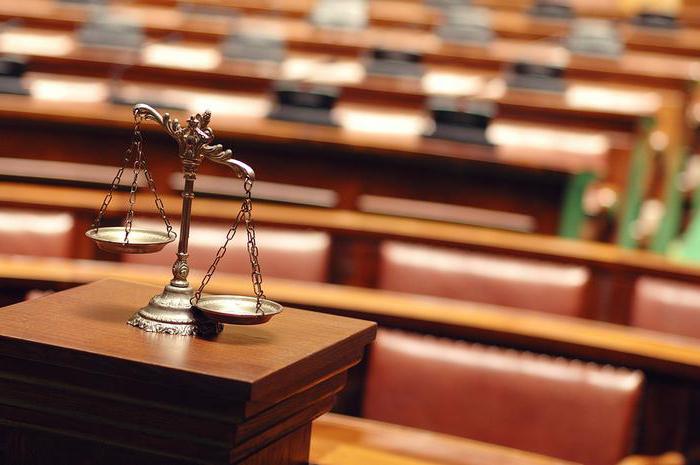In h. 1 Article. 75 of the Code of Criminal Procedure of the Russian Federation it is established that information that was obtained in violation of the requirements of the law cannot be used by the prosecution and have no legal force. These materials cannot be used to confirm any of the circumstances set out in norm 73. We will consider in more detail Art. 75 Code of Criminal Procedure with comments.
Key Points
In part 2 of Art. 75 of the Code of Criminal Procedure of the Russian Federation the types of violations are determined, as a result of which the information and materials received are not accepted for consideration. In particular, the testimony of the accused / suspects, which are given during the investigation in the absence of a defense lawyer, including in case of refusal from him, if they are not confirmed by the subject during the trial, will not have legal force. According to Part 2 of Art. 75 of the Code of Criminal Procedure, information received from witnesses / victims, based on guesses, rumors, assumptions, is not taken into account. The testimonies of subjects who cannot name the source of awareness are also not valid. Other materials and information received in violation of the provisions of the Code are not taken into account.
Article 75 of the Code of Criminal Procedure: unacceptable evidence (clarification)
Materials and information obtained by officials during the investigation should comply with the established requirements of the law. This means that they must have the proper procedural form. Deviation from it leads to nullity of information. This is confirmed by judicial practice under Article 75 of the Code of Criminal Procedure. Inadmissible evidence becomes such in violation of the provisions of the Code. However, in accordance with the Constitution, it is forbidden to use information and materials obtained in case of non-compliance with the requirements of federal law. In this situation, there is a conflict of norms. In such a case, constitutional provisions prevail. In this regard, according to experts, the interpretation of Art. 75 of the Code of Criminal Procedure of the Russian Federation must be expanded. Otherwise, materials obtained, for example, with violations during operational search measures, but duly executed, could be taken into account in the proceedings.
Example
Operational officers conducted a test purchase of a narcotic substance with further penetration into a residential building against the will of the people who were in it, without obtaining the prior permission of the authorized body. If the prohibited means and money obtained from the seller obtained in this case are inspected in compliance with procedural requirements, then within the meaning of Art. 75 Code of Criminal Procedure, they have legal force as materials confirming the guilt of the subject. Thus, formally, the provisions of the Code were not violated. Nevertheless, these actions contradict the Federal Law governing the operative-search work and the Constitution. Accordingly, the evidence obtained cannot be considered admissible. Otherwise, there is a substitution of operational-search actions of procedural measures for illegal acquisition of materials necessary for the prosecution.
Guarantee of the rights of subjects
In Art. 75 of the Code of Criminal Procedure of the Russian Federation an open list of situations is given when materials and information received by officials should be recognized as null and void. In particular, this is considered the testimony of the accused / suspect, which was given to him in the absence of counsel, as well as not confirmed at a hearing in the case. This provision of Art. 75 of the Code of Criminal Procedure of the Russian Federation acts as the most important guarantee against the self-incrimination of the subject and his recognition of guilt under the influence of mental pressure or physical violence. It is necessary to pay attention that the refusal of the suspect / accused himself is included in the condition of absence of a defense counsel. This prevents unlawful actions of officials. In particular, they may manifest themselves in a formally voluntary unwillingness to exercise the right to counsel. In such situations, he, on the contrary, is, as a rule, forced.

Unverified Information
They are information provided on the basis of guesses, rumors, assumptions, as well as the one whose source the subject cannot name. The inclusion of this provision in Art. 75 of the Code of Criminal Procedure of the Russian Federation is determined by the fact that verification of such information is extremely difficult. In addition, the investigation uses specific facts directly related to the event. All this applies to the testimony of the witness. As for the victims, the provision does not apply to them. It is probably assumed that the victim himself acts as the primary source of information about the crime, so it is unlikely to give evidence by rumors.
Other violations
The norm under review also establishes that the evidence that was obtained in other non-compliance with the provisions of the Code also acts as unacceptable. Many people believe that any violation of procedural law, that is, derogation from any prescription present in the rules, leads to the loss of legal force by the information received. Meanwhile, it should be noted that the article in question refers to non-compliance with the Code as a whole, but not its individual provisions. If the legislation provides for ways and means by which to neutralize the consequences, with proper application it will not be possible to say that the materials and information were received illegally, therefore they cannot be accepted. As the judicial practice under Art. 75 of the Code of Criminal Procedure of the Russian Federation, failure to warn a witness that he has the right not to testify against himself or his relatives is a significant violation of applicable procedural rules. But if it is established, including using the explanations of the subject himself, that this did not affect the good faith of the information provided to him, they can be considered legally binding. Along with this, it is impossible to eliminate any violation related to obtaining confession from the accused through ill-treatment, torture, degrading dignity. Or in another case, for example, a search was conducted with witnesses. Subsequently, it turned out that they were the interrogators. In accordance with the rules, only interested parties can be understood. Thus, doubts arise about the objectivity of the search and the reliability of the results that were obtained.

Regulatory support
The current CPC provides guarantees for the timely detection and blocking of inappropriate information. In accordance with Art. 88, paras. 3, 4, subject to certain conditions, the investigator, prosecutor, inquirer may recognize the materials as null and void on their own initiative or at the request of the accused / suspect. Evidence deemed inadmissible shall not be included in the indictment or opinion.
Right of appeal
According to Art. 125, part 1 of the Code of Criminal Procedure, decisions of a prosecutor, investigator, investigator refusing to initiate or terminate a criminal case, as well as other actions / omissions or decisions that could harm the constitutional freedoms and legitimate interests of the parties to the process or impede the subjects' access to the proceedings, can be challenged . The rights of citizens include the opportunity to declare a requirement to exclude information obtained illegally from criminal materials. It follows that decisions, inaction, actions of officials and authorized bodies related to obtaining evidence, but violating the rules, can be appealed.
Additionally
According to Art. 14, part 3, doubts arising in the guilt of the subject, which cannot be eliminated in the manner provided for in the Code of Criminal Procedure, are interpreted in favor of the accused. According to experts, this provision also applies to cases of illegality of the materials collected in the case. If the investigator, prosecutor, interrogating officer or the authority authorized to the proceedings received evidence to justify the accused, in violation of the established procedure, then it must be recognized admissible at the request of the defense. In any case, such information raises doubts about the guilt of the citizen. In this case, the burden of proving the errors of the prosecution cannot be borne by the suspect / accused. Other rules apply if the defense provided evidence obtained in violation of the rules. In such situations, the information may be considered null and void if the fact of illegality of its receipt is proved by the prosecutor. The basis for this conclusion is not only part 1 of article 75. This provision is also determined by the constitutional norm, which establishes that everyone has the right to freely seek, receive, distribute, produce, transmit information exclusively by legal means. The acceptance by the court of this kind of evidence does not exclude its assessment in terms of reliability, taking into account violations that were committed in the process of collecting them.